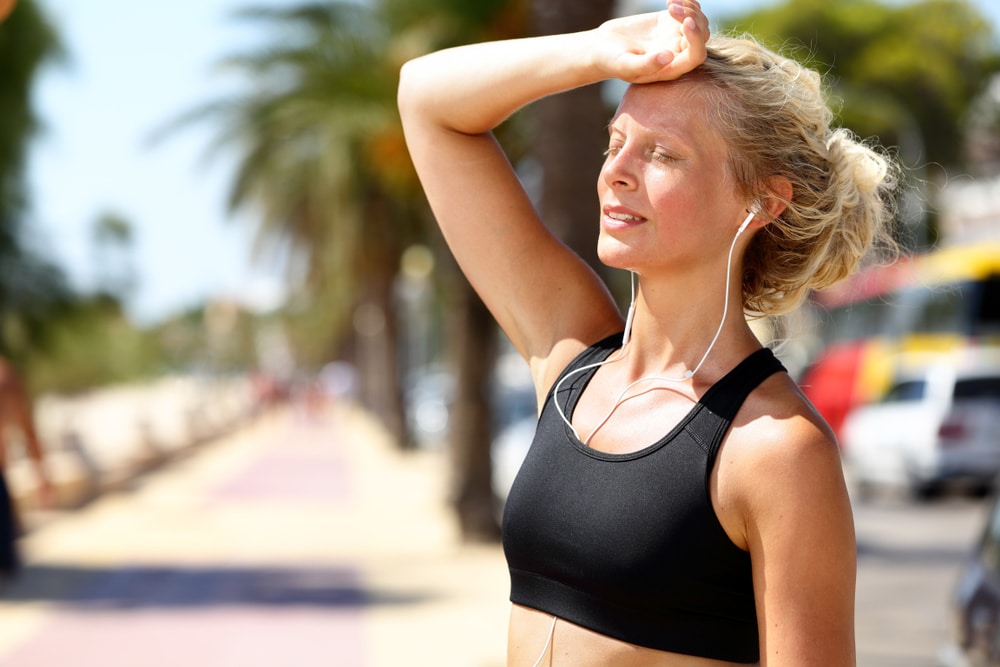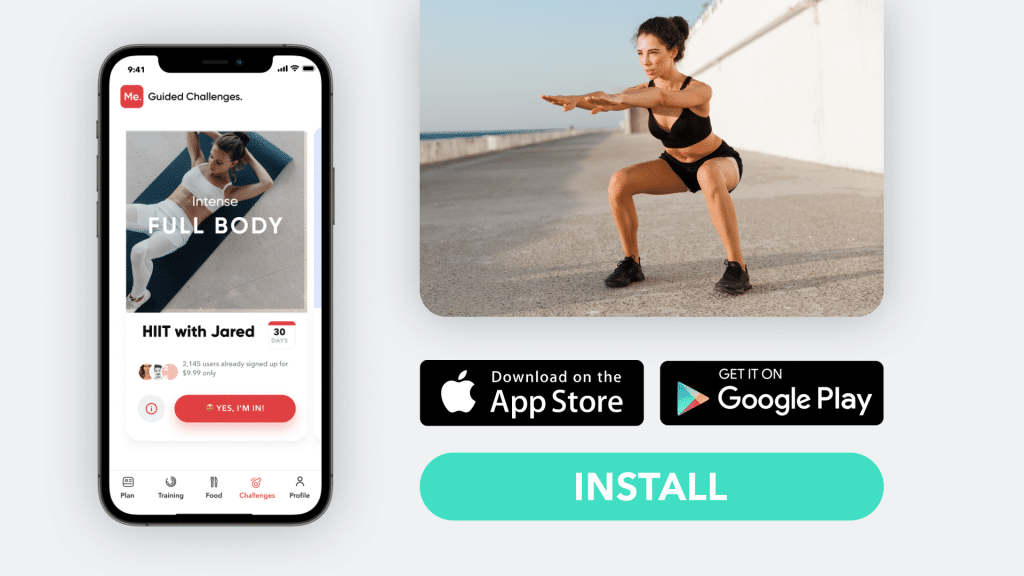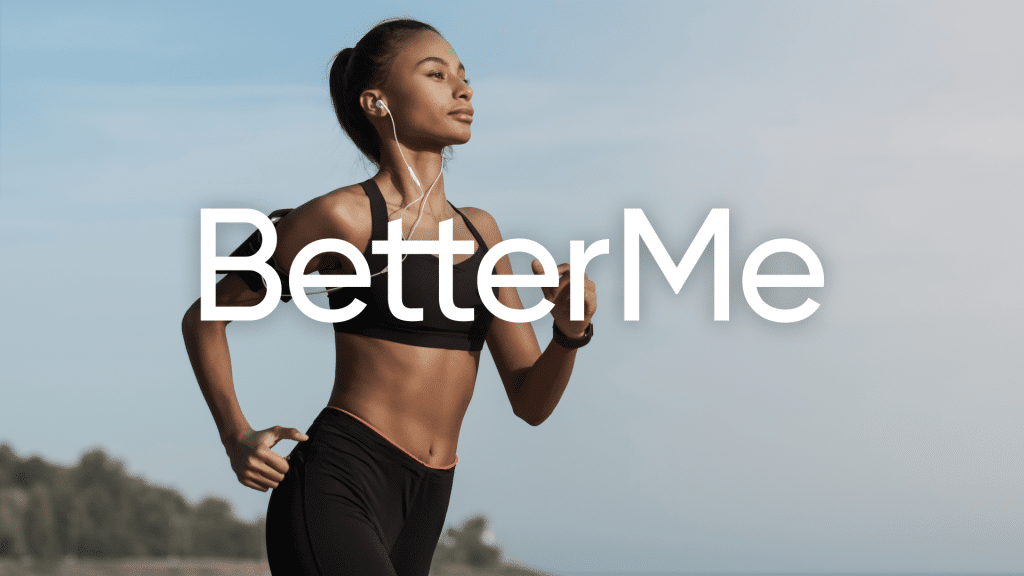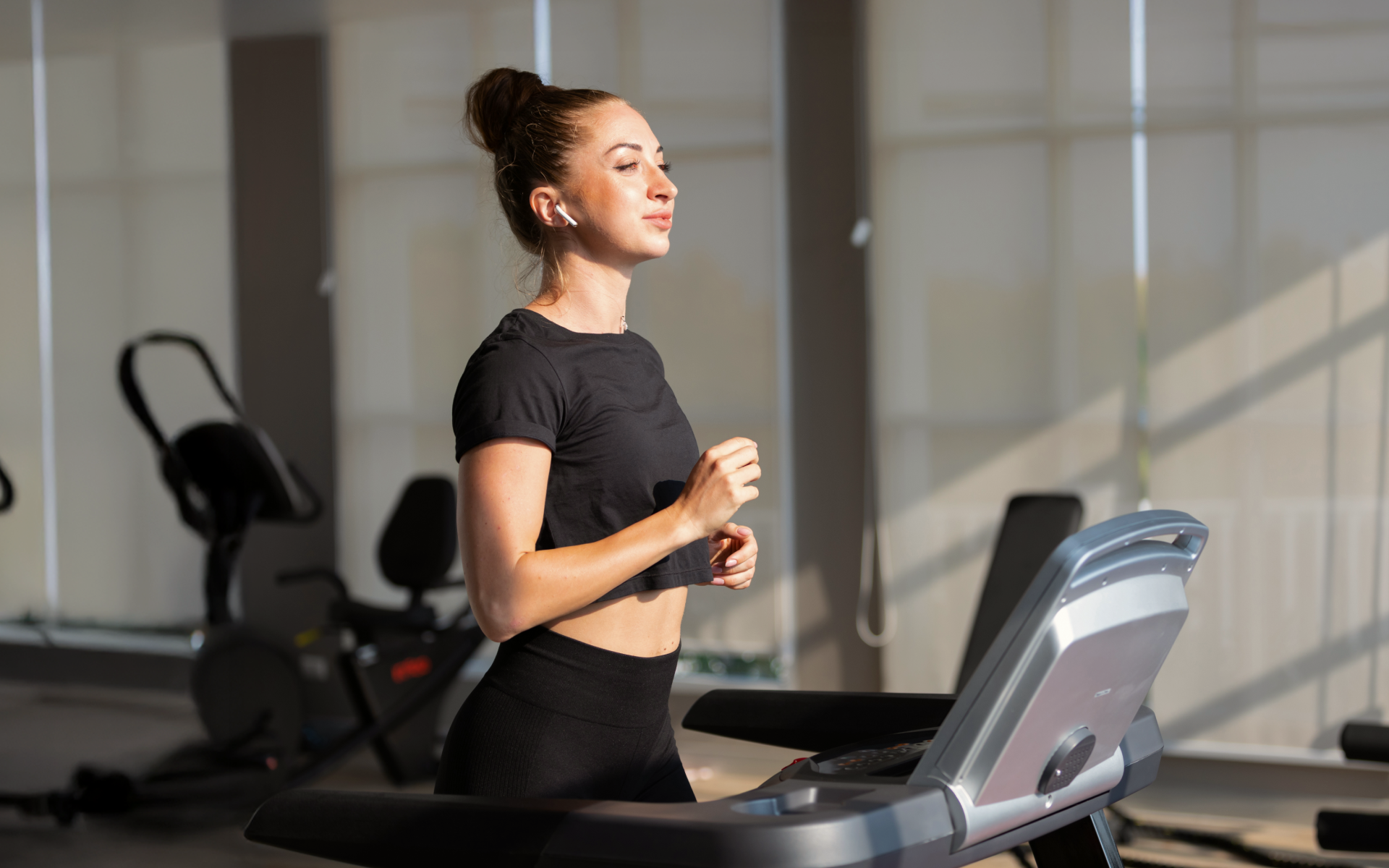Most people don’t like it during the hot seasons. You have trouble sleeping, and the heat outside is simply unbearable. Lying naked on the floor with the A/C on is something you want to do. Well, unless you’re lying on some beach in Hawaii with your glass of mojito, these are not times you look forward to. Then there’s the group of people who intensify their workouts in hot weather. But is it worth it to do so? Are there any added benefits of working out in the heat, like increased calorie burn? Let’s find out.
Why Do You Burn More Calories In The Heat?
Calorie burn is an essential aspect in modern times. In an age where conditions like obesity are prevalent, you can understand why this is so. What then happens when the temperature is high? Do you get to burn more calories?
Simply put, yes, you do. And this is not because you think the heat is burning away fats; science says you do. See, there are a lot of factors that affect how many calories you burn in a day. Some of them are within your sphere of control, and others are just not. One of the latter factors is total energy expenditure.
This is the sum of the energy your body uses up to digest food, in physical activities, and your resting energy expenditure. Your resting energy expenditure (REE) accounts for most of the calories burned, while physical activity is the most variable aspect (10). REE is what is responsible for your higher calorie burn in hot weather.
What exactly is REE? Assuming you’re feeling lazy and want to lie down all day, your body will still be working to keep you alive. The energy needed to sustain crucial life functions like breathing and heart rate is called resting energy expenditure, or REE.
This amount is given as calories and is responsible for the majority – 60 to 80 percent – of your daily calorie burn. Count 1 calorie per kilogram of body weight per hour to get a rough idea of what your REE is. For instance, a 121-pound woman has an REE of about 1320 calories, while a 154-pound man is about 1680 calories (3).
After getting that figure, factor in your activity levels. If you’re mostly sedentary, multiply the results by 1.2. For individuals who exercise 1-3 days a week, the factor is 1.375. It is 1.55 for those who exercise 6-7 days a week and 1.725 for highly active people. Finally, if you do endurance training, multiply the value by 1.9 (3).
A lot of factors can influence REE. These include age, sex, hormones, genetics, body composition, and body size, but the environment can also impact it (10). Your body will always need stable temperatures to function normally.
So when the temperatures in your surroundings spike, your body works to keep its temperature steady. Calories are then burned to fuel this process. So, scientifically speaking, extreme temperatures (heat or cold) increase your REE, and as a result, you burn more calories (10).
You’re probably wondering now how many more calories you burn in the heat. Well, there are no studies that point out an exact figure. However, researchers generally agree that there’s an extra calorie burning process when temperatures are high.
We’ve established that extreme temperatures equals more calorie burn. But extreme temperatures also include cold conditions. Let’s look at how these two conditions compare when it comes to burning more calories.
BetterMe app will provide you with a host of fat-frying fitness routines that’ll scare the extra pounds away and turn your body into a masterpiece! Get your life moving in the right direction with BetterMe!
How Many More Calories Do You Burn In The Heat Vs. In The Cold?
So do you burn more calories in the heat or when you’re cold? Next, we look at each scenario to determine the answer to this question.
Calorie Burn In the Cold
It’s easy to think that your body works extra hard to keep you warm when it’s cold. To some extent, this is true, but the extra calorie burn occurs when you start shivering. Shivering is an indication that your body is responding to the low temperatures and is trying to raise your internal temperatures. This happens through negative feedback, where your body reacts to internal changes and tries to bring them back to normal (11).
How many calories you burn in this case will, however, depend on various factors. These include how long you’ve been out, type of clothing, and overall outside temperature. You should be careful, though, not to go into hypothermia. When this occurs, blood pumps away from your limbs towards your core to keep you warm (9).
Severe hypothermia may lead to stumbling, uncontrollable shivering, and difficulties in speaking (9). Dr. Kouri points out that shivering can use up to 400 calories an hour, depending on how you dress. This will, however, deplete your glycogen reserves, leading to fatigue (11).
Also contributing to the extra calorie burn is brown fat, which is a specific type of body fat that gets activated when you are cold. The body has a lot of ways it can use to acclimatize to cold temperatures apart from shivering. A month-long study by a U.S. Army researcher clearly showed this. In the study, 10 nude men were exposed to temperatures below the 50s for eight hours daily (4).
They shivered a lot at the beginning of the study until they just didn’t. By the 14th day, the men had stopped shivering, and it looked like their bodies were generating heat using alternative means. This has been linked to the presence of brown fat. When the temperatures are low, they are activated, leading to a domino of increased calorie burn and heat generation (4).
These reactions lead to higher energy expenditure when you’re in the cold and are actually cold. Being in the cold does not affect your calorie and energy expenditure; being cold does.
Calorie Burn In The Heat
It’s mid-summer, and you’re sweating. Somewhere in your mind, you’re asking yourself whether sweating burns calories. Maybe that’s the only thing keeping you going in the hot temperatures. What exactly happens in your body when it’s hot outside?
Body cells need a stable temperature of about 37 degrees Celsius to function correctly (2). Any drastic deviations from this temperature trigger your body to employ corrective mechanisms. Sweating is one of these measures; however, sweating by itself doesn’t raise the number of calories burned. It only cools your body.
To initiate these corrective measures, you’ll require some extra energy leading to the extra calorie burn. So do you burn more calories in the heat? You do. However, the number is believed to be less than that burn when you’re cold.
Both scenarios will lead to increased calorie consumption. Does this then mean it’s better to exercise in extreme weather conditions? Keep reading to find out.
Read More: Calories Burned Calculator: A Simple Way To Find Out How Many Calories You Burn Daily
Does Working Out In The Heat Burn More Calories?
For most people, summer signals a trip involving glasses of cold white wine to the Bahamas. This is the time to kick your workouts up a notch and get into shape for other people. However, the idea of working out in hot weather isn’t appealing by any standard. The heat leads to a lot of sweat that can make you uncomfortable.
All this, however, is just one side of the coin. Many questions have been raised concerning working out in extreme weather conditions- both hot and cold. Many people want to find out whether exercising in cold weather or running in the heat torches more calories. In this section, we focus on the relationship between heat and exercise.
So do you burn more calories when you work out in the heat? Are you doing your body any good? Are there concrete benefits that will make the whole process worthwhile? And now, for the moment of truth.
To understand and answer this question, we start with a few basics. When you exercise, your body will first use carbohydrates as an energy source, then fat. . As the intensity of the exercise increases, the mix leans more towards carbohydrates (2). For instance, running a 9-minute mile in hot conditions is more intense than in cool conditions. So you’d expect that more carbs will be used up in the heat due to this.
But heat affects your body in many ways. We, therefore, ask if our bodies’ fuel preferences also change in the heat. According to this study, exercising in the heat (about 40 degrees Celsius) increases muscle glycogen oxidation. Also, it decreases the whole body fat oxidation compared to the same exercise intensity at 20 degrees (2).
So do you burn more calories when you run in the heat? Based on the study above, you do. Now there’s one more question left- “How many more calories do you burn running in the heat compared to the cold?” Though there’s no substantial research that gives an exact figure, exercising in the cold may lead to more energy consumption.
Another thing that affects calorie consumption in hot conditions is the basal metabolic rate. The BMR is the measure of energy spent per unit time at rest or how fast you break down calories. All this, of course, is to fuel your body and keep your cells running. While it’s true your BMR will vary with activity levels, in theory, weather and climate can also affect it (10).
Warmer weathers may slightly increase your BMR, helping you burn calories faster. This is largely because your body is working harder to keep you cool (10). Working out in the heat will increase your calorie burn but is not considered to be very safe. Some of the dangers associated with working out in the heat include:
- Dehydration. You may end up being dehydrated since your body will be losing a lot of water through sweat without any replacement. If you find yourself getting thirsty, having a dry or sticky mouth, then it’s time to stop exercising and get hydrated (13).
- Heat exhaustion. This occurs when you’ve been exposed to high temperatures for too long and is accompanied by dehydration. Symptoms include fatigue, confusion, profuse sweating, and muscle cramps. If you show these signs, get out of the heat, remove tight clothing, take a cool shower and drink plenty of fluids (6).
- Heat Stroke. This is the most severe form of heat injury. It occurs due to prolonged exposure to high temperatures when you’re dehydrated. This eventually leads to the collapse of your body’s temperature control system. It’s indicated by nausea, seizures, disorientation, and fainting (7). This is a medical emergency, and you should call 911 if you suspect you or someone has a heat stroke.
Also, the increased calorie burn may not last long. This is mainly because our bodies are masters of adaptation. The longer you work under extreme temperatures, the more your body is conditioned to work less. The number of calories burned, therefore, naturally decreases.
Another important factor to consider before working out in hot conditions is perceived exertion. When you exercise in hot settings, you may think you’re training harder and burning more calories than you are. A study done by the American Council on Exercise and published in 2013 confirms this (8).
It aimed to obtain the difference between hot and regular yoga. The participants were but in both settings for 60-minute sessions each. Their core temperatures and heart rates were measured before, during, and after the test. At the end of the hot yoga session, the participants were all sweating, but there was no notable change in measured parameters (8).
They, however, considered themselves to be working harder based on the perceived exertion scale. This may have been because they reduced their efforts due to the warmer temperatures. The excess sweat probably made them think they had put in extra effort in the hot yoga session (8).
The point is, you may think you’re burning more calories when you sweat profusely despite that not being the case. So before going out to exercise in the heat, remember that being drenched in heat doesn’t mean you’re getting more calorie burn.
That’s that about working out in hot weather. If you decide to go ahead and try it, make sure you do it safely by using these tips.
Betterme will keep you laser-focused on your weight loss journey! Nutrient-packed meal plans, fat-blasting workouts, galvanizing challenges and much more. Try using the app and see for yourself!
How To Work Out Safely In Hot Weather?
After all, is said and done, working out in the heat has its pros and cons. If you intend to maximize and focus on the pros, try these tips to keep you safe when you’re working out.
Stay Hydrated But Use The Correct Fluids
The importance of water when it comes to being hydrated cannot be overstated. You should always have a bottle of water with you. However, if you plan to work out for more than 60 minutes, consider adding sports drinks to the mix to replenish your electrolytes.
These drinks contain vitamins and minerals that are crucial for rehydrating and replenishing your body. Also, the high sodium levels in these drinks may be good for you as it replaces used up sodium. Finally, never wait until you’re thirsty to drink and avoid alcoholic beverages as they promote weight loss.
Watch All Temperatures
Always make sure you keep a close eye on weather forecasts and heat alerts. Before you go outdoors for your session, know what the temperatures will be for the time you’ll be out. For instance, in running events, flag warnings corresponding to heat and humidity are issued. Different flag colors represent different levels of caution, like yellow means careful monitoring is required, and in black flags, races are canceled.
Also, pay attention to your body’s temperature. If you stay exposed for too long and you feel like it’s only getting worse, then it’s time to get some shade.
Get Acclimated
If you’re new at exercising out in the heat, you should take it slow as you begin. Ideally, it takes between one to two weeks for your body to adjust and adapt. Over time, gradually and steadily increase the intensity and length of your workout.
Understand Your Fitness Level
Generally, if you’re new to working out or physically unfit, exercise extra caution in the heat. This is because your body may have a lower tolerance to high temperatures. You should take frequent breaks and reduce your exercise intensity.
Don’t Stretch Past Your Limits
Always listen carefully to what your body is telling you. If you start exhibiting dizziness, nausea, or fatigue, then it’s time to take a break. There is no point in overworking your body in extreme temperatures just to get injured or sick and eventually stop working.
If your drill is all about high-intensity routines and the heat is unbearable, break it up to smaller multiple workouts. This gives your body time to rest and refuel without compromising your workout goals and fitness.
Timing Is Key
What this simply means is to avoid the midday sun! Depending on where you live, the hottest periods in summer are considered between 10 a.m to 3 p.m, but the peak is midday. So it is advisable to work out in the early mornings or late evenings. This helps you stay energized and sleep better at night, respectively.
Understand Your Medical Conditions
Some medical conditions or medications will make you more vulnerable to heat-related illnesses (5). Always talk to your doctor about precautions before you go out running in 90 degree weather.
Dress Appropriately And Wear Sunscreen
These are essential preparations before going out to exercise. Light and loose clothing will keep you cooler. Also, avoid dark-colored clothes that absorb heat. Sunscreen will protect your body from sunburns and undesired eventualities like skin cancer.
Conclusion
Working out is vital when it comes to staying fit. People are always looking for new ways to get the extra burn. One may argue that working out in extreme weather conditions is one of these ways.
Exercising in hot weather conditions will increase your calorie burn to some point. However, you should always take care not to expose yourself for too long in the heat. This is because uncontrolled exposure may lead to health hazards like heat strokes.
So before you go out in the heat, make sure you fully understand what you’re getting yourself into and take precautions.
Get your personalized
meal plan!
DISCLAIMER:
This article is intended for general informational purposes only and does not address individual circumstances. It is not a substitute for professional advice or help and should not be relied on to make decisions of any kind. Any action you take upon the information presented in this article is strictly at your own risk and responsibility!
SOURCES:
- 8 Tips for Working Out in the Heat (2017, pennmedicine.org)
- Aerobic fitness determines whole-body fat oxidation rate during exercise in the heat (2010, pubmed.gov)
- Calculate Your Daily Caloric Needs (n.d., acefitness.org)
- Chamber cold acclimatization in man (1961, physiology.org)
- Heat and exercise: Keeping cool in hot weather (2020, mayoclinic.org)
- Heat Exhaustion (n.d., webmd.com)
- Heat Stroke: Symptoms and Treatment (2020, webmd.com)
- Hot Yoga- Go Ahead And Turn Up The Heat (2013, acefitness.org)
- Hypothermia (2020, mayoclinic.org)
- Potential Causes of Elevated REE following High-Intensity Exercise (2018, nih.gov)
- Shivering Triggers Brown Fat to Produce Heat and Burn Calories (2014, nih.gov)
- What is brown fat? How is it different from other body fat? (2020, mayoclinic.org)
- What is Dehydration? What Causes it? (2019, webmd.com)














